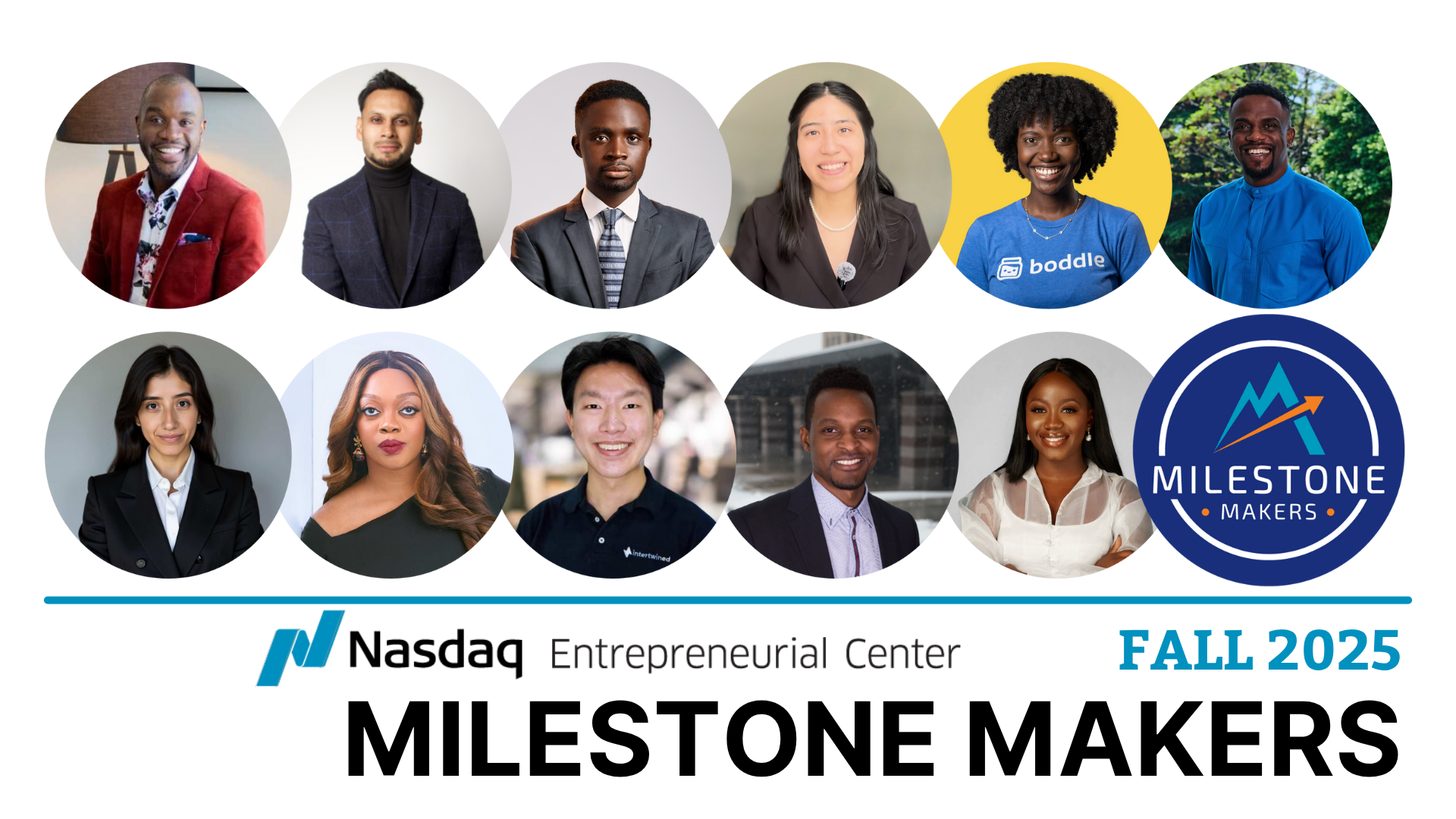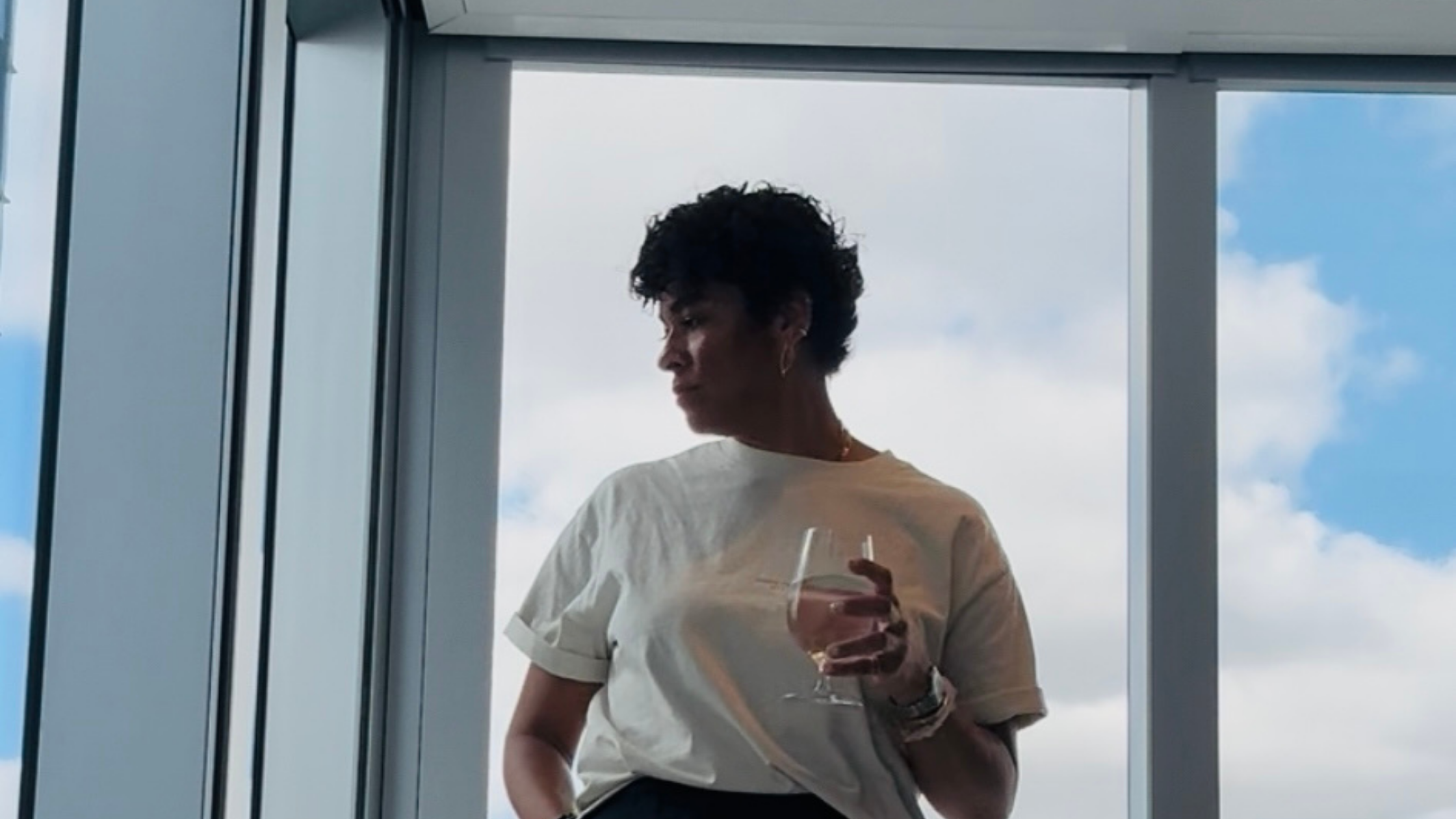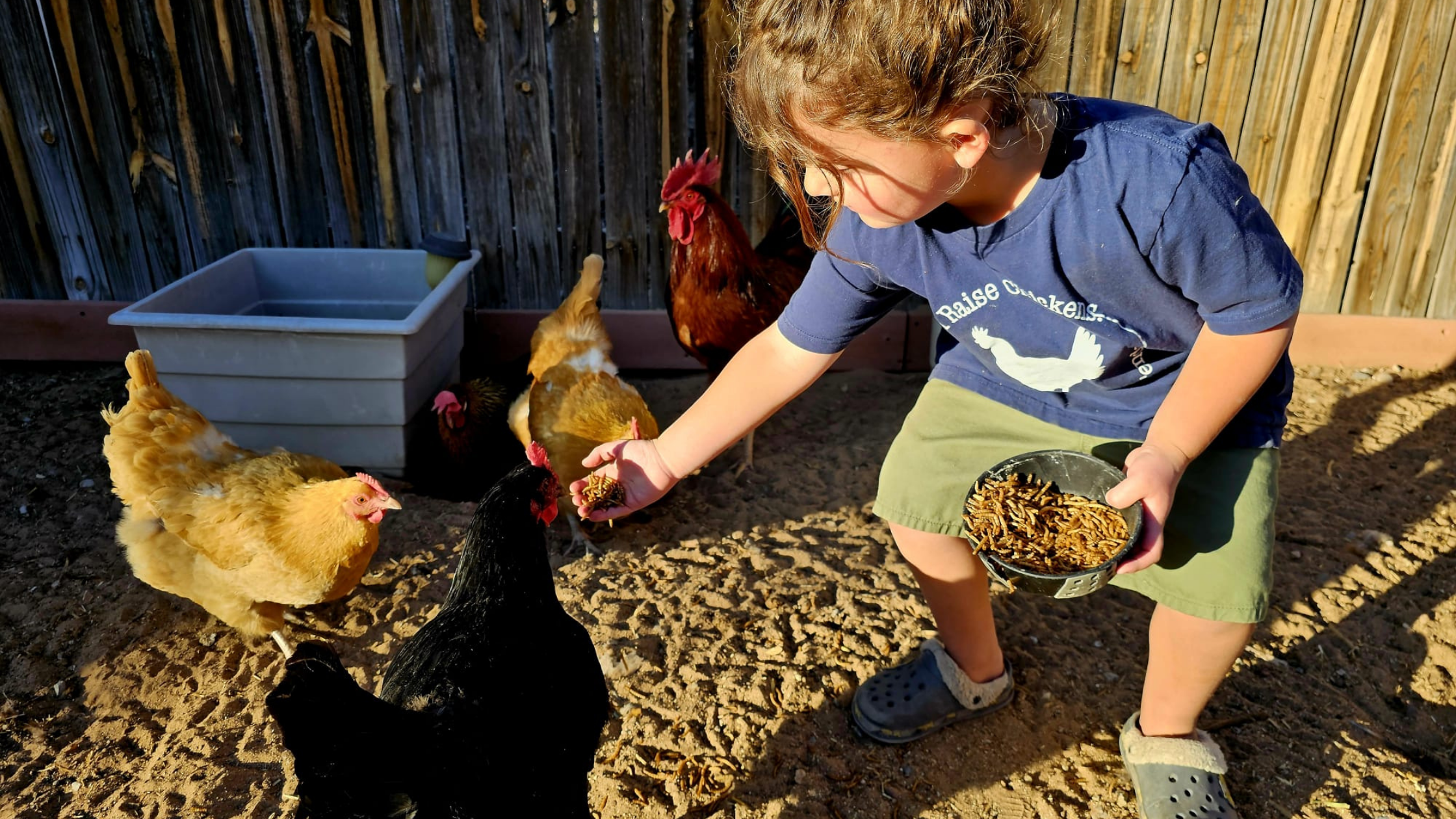Chelsie Lee is the co-founder and CEO of Shipsi, an e-commerce solution that enables any retailer to easily and affordably deliver consumer orders within as little as an hour. The Nasdaq Entrepreneurial Center took a moment to catch up with Chelsie on her journey thus far.
What does “entrepreneurship” mean to you?
CL: It’s the ability to plow through brick walls. It’s understanding how to inspire and lead a group of real humans. It’s knowing when to take risks, and when not to. In order to keep going, you have to be strong—you have to be on your game. You don’t get sick days or get to take time off, because your business is moving whether you feel like it or not. You have to adapt, be a chameleon, and also have thick skin to push forward when others would give up or wither away.
Entrepreneurship is about being a bulldog but with a remarkable grace. There are so many situations where you have to be either a bulldog or be empathetic—and you have to know exactly which card to play in each situation. Your gut will tell you how to do all of this. But you have to have the courage to do what your gut is telling you is the right thing to do.
How did your company come to be?
CL: I realized what we had would monumentally change the future of retail the first time I saw a glimpse of what could be behind the scenes– the data. I realized we would positively impact every part of the supply chain and overtime, have predictive analytics on the on-demand market.
I resigned from corporate America that very day to become the CEO of Shipsi.
What is the biggest experience or lesson gained on your journey so far?
CL: Every problem in the business can be traced back to the founder; the choices and decisions you make impact everything. Thats the big bombshell. My other CEO friends and I have found this to be true, every single time. Whether it’s that you screwed up, or you hired the wrong person, or you treated someone unfairly—it’s all on you. But normally, when you have problems, it’s going to be because you didn’t surround yourself with the right people. If you don’t have the right people—meaning, people you trust and who can get the job done—that’s the start of every problem. Once you get the right people, you have to trust them and give them freedom so they can do their jobs. Without trust and commitment to each other, you have nothing.
How is your company changing the landscape?
CL: We’re leveling the playing field so that ANY retailer, big or small, can do same-day shipping. Not just Amazon. And because we’re using our massive network of last-mile delivery drivers from other companies to make the deliveries, this makes it super affordable for both the retailer and the consumer.
What will this look like in the future? Imagine a world where as a consumer, you get everything you want—when and where you want it. You can get any retail goods within an hour, just like you can get food now.
Retailers benefit by drastically decreasing their shipping spend (consumers pay the shipping costs for SHIPSI orders unless retailer subsidizes it), increase cart conversion, and skyrocketing customer satisfaction. Drivers benefit by having more rides during off-peak hours and improved delivery success rate. Warehouses and 3PLs benefit with more business. And as an environment, we collectively decrease the carbon footprint and improve everyone’s operational efficiency. It’s real life, and we’re making more and more of an impact as we continue to build out our network every single day.
What do you wish you knew when you started? Is there anything you would do differently?
CL: I’ve been beyond fortunate to have learned so many lessons from so many people—right when I needed to know them. From family, friends, strangers, mentors, teachers, leaders, you name it. There are not enough Thank You cards in the world to suffice (My Grandmothers homemade cards are the best, by the way) for every second they gave me.
The only thing I can think of that I wish I had understood was how valuable my time was when I started—and my own perception of my time has skyrocketed. I’m the ONLY person who can do certain high-impact things for the business, and I’ve recently blocked off most of my time for doing only things that are directly tied to revenue. If only I had the hundreds of hours back that I used in the early days, wasting time on things I should have delegated a long time ago. As a founder, it truly is trial by fire!
What advice/credo do you live by as you grow the business / what is your professional and personal mission statement?
Carpe diem. A fundamental choice; to seize or not seize. Seize it.
What’s it like to work alone or with your partners? What advice do you have for fellow entrepreneurs about building and leading teams?
CL: SO much advice. But I’ll boil it down to 3 things. The first big thing is this: Slow and steady wins the race. Here’s what I mean by that: You and your team need to align on specific objectives from the beginning in order to avoid tons more work (and missed deadlines) later. Yes, even though that takes time up front. It’s worth it.
The second big thing is, if you’re going to call a meeting, make sure you have a real, significant purpose every time. Apply this both internally and externally and you’ll make significant progress faster than you ever thought possible.
The final big thing: Don’t be a slave to email. There might be tons of things for you to address. But are they actually critical for the future success of your business or are you wasting time not doing the high-impact business things that only you can do? The goal should be to provide as much direction or context necessary and avoid further back and forth. So, give yourself a period of time every morning where your team knows you are unreachable (except for emergencies). Get your best work done with your best work hours, then get on email.
Where do you find inspiration when faced with challenges?
CL: The simple things. A good read, a nice walk outside, yoga, a nice cup of tea or a glass of wine. Those things help me unwind a bit, so my subconscious mind can chew on the challenges I’m facing without me having to spend active mental energy on it. Of course, a well-aligned and equally motivated co-founder is almost certain to do the trick, too. 🙂
What does “success” look like for you? What do you think will help you achieve it?
CL: Success looks like my entire team (internal and external) being fully supported in every capacity. That’s a massive priority for me. I want them to have lives they love, feel secure, feel supported, and feel like they have everything they need to make the biggest impact possible for SHIPSI.
But it’s more than SHIPSI goals. Success to me is paying off my mother’s mortgage and taking a week off to take my Gram on the trip to Poland she’s always dreamt of. I’d like to have time for a dog (a big one, of course)—and I wouldn’t mind finding a human who can keep up with me.
What is your proudest and darkest moment so far? Share a key high and a key low from your journey if you can.
CL: My proudest AND darkest moments both came on the fundraising trail. Raising money as a female founder was excruciating. I’ve been disrespected, had people steal my ideas, had VCs share my deck with undeveloped competitors, had potential investors (or so they said) try to make out with me—just to name a few things.
Still, after a couple hundred rejections (seriously, I’m talking real meetings) from a mix of angels and VCs, we closed Shipsi’s first round at $1.9M with 3 separate VCs offering to lead. One of the proudest moments (and surprisingly anticlimactic) of my life was when we officially closed that round. Sending an investor to a demo site who told me this was an impossible problem to solve, one that could never be done a package in 18 minutes was pretty rad too!
Kill em with kindness (investor, competitor, customer) or it might come back to bite you in the ass!
What lesson did 2018have for you? What do you look forward to in 2019?
CL: I learned that too many investors or team members is like having too many cooks in the kitchen. You only need a few great ones. I also learned how to handle uncomfortable and inappropriate situations from both male and female investors. I’ve got an amazing BS radar now, and I’m able to anticipate whether someone’s words and actions are going to line up. Of course, this applies both internally and externally.
I’m excited to start raising our second round with all the invaluable experience I’ve gained from the first go-around. I had quite a giggle and will never forget the first time an investor shared their deck with me in an effort to convince me why they were so great and I should take a meeting.
Many entrepreneurs continue to perfect their daily routines to support their work and greater vision; would you mind sharing your morning routine or a regular ritual that grounds your work each day?
I live my life by the old saying: “Early to bed, early to rise, makes a man healthy, wealthy and wise.”
I wake up between 5 – 6 each day, and here’s my routine:
1) Jump in a hot shower (I’m recently obsessed w/ Le Labo Rose & Santal 26) while my Sonos alarm blasting old tunes 15 minutes
2) Like clockwork, audio book starts and a call from my co-founder. Of course, while I do my hair/makeup… I’m all about efficiency.
3) I eat one egg every morning, religiously.
4) Breathe. Take a moment to prioritize the three most critical things that must get done today to have the largest impact. (Not email)
5) Gametime!
Most importantly though, once I start working, I immediately ask myself, “What support do I need to give my team to enable them absolutely dominate today?” In the startup world, when there are so many balls flying around, you have to make sure you’re not the bottleneck. Who needs something from me? I encourage the entire team to think about who their internal customer is. I get people everything they need, and then I start on the work that only I can do—and the three priority items.
What kind of an entrepreneur do you want to be known as, as in, what do you want your legacy to be?
While I’d love for people to say, “Wow, she was wicked smart” or “She saw things others didn’t,” what I’d really like to be known for at the end of my journey is that I helped other people become far greater than they ever thought they were capable of. I want people to have done things, accomplished things, taken on things that are so far outside what they were used to, that it broadened their horizons and grew them into people who achieved more than they believed possible. I want to be the fuel enabling other people to become great.




